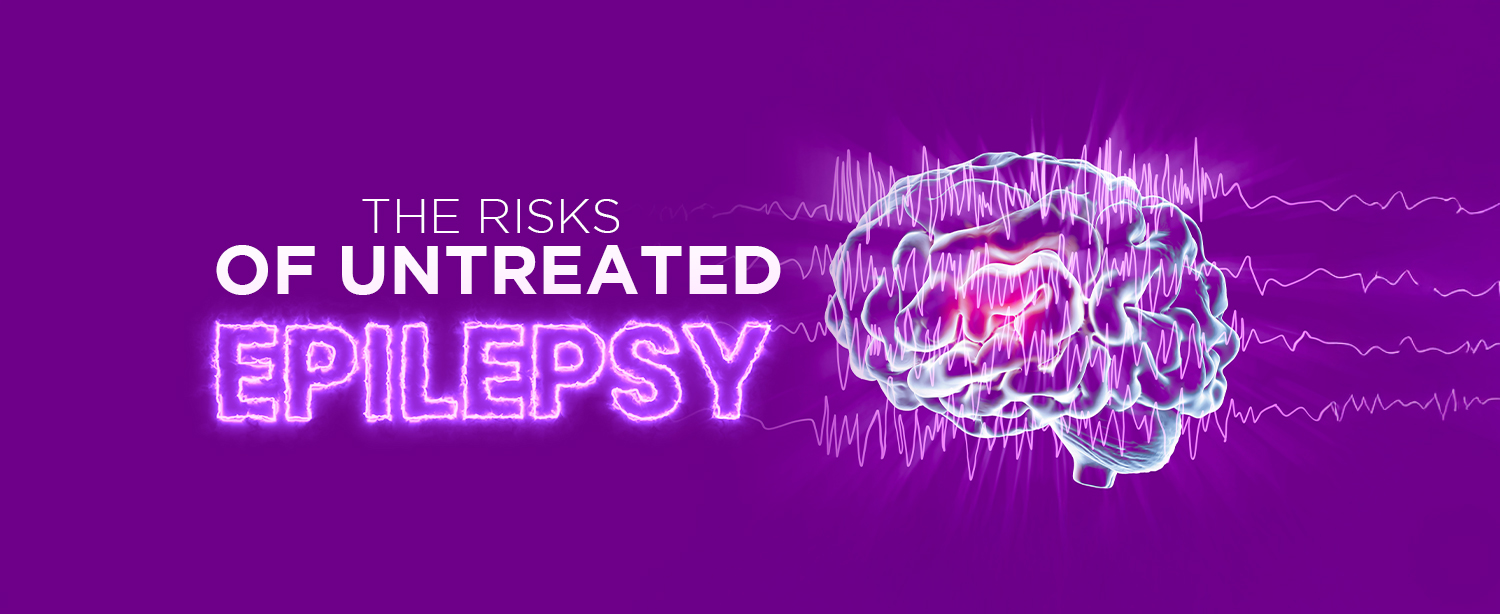Epilepsy is a complex neurological condition characterized by recurrent seizures, which are bursts of electrical activity in the brain that temporarily affect how it works. While treatment can significantly reduce or even stop seizures for many, the risks associated with untreated epilepsy can be severe and life-altering. It is crucial for individuals with epilepsy to seek treatment to mitigate these risks.
Table of Contents
Key Risks of Leaving Epilepsy Untreated
- Increased Seizure Frequency and Severity
Without proper treatment, seizures may become more frequent and intense over time. This escalation can complicate the condition further, making it harder to manage in the future. - Physical Injuries
Seizures can cause falls, accidents, and other injuries. During a seizure, the loss of muscle control and consciousness can lead to severe injuries, including head injuries and fractures. - Status Epilepticus
This life-threatening condition occurs when a seizure lasts more than five minutes or when seizures occur close together without recovery between them. Status epilepticus requires emergency medical intervention to prevent permanent brain damage or death. - Psychological Impact
Chronic unmanaged epilepsy can lead to social isolation, depression, and anxiety. The unpredictability of seizures can cause significant psychological distress and impact mental health. - Cognitive Decline
Frequent seizures, especially in uncontrolled epilepsy, can affect cognitive functions over time. Memory, attention, and other cognitive abilities may decline, impacting the ability to work, learn, and engage in daily activities. - Sudden Unexpected Death in Epilepsy (SUDEP)
SUDEP is a rare but serious complication of epilepsy. The risk increases with uncontrolled seizures, particularly tonic-clonic seizures. Managing epilepsy effectively reduces the risk of SUDEP. - Compromised Quality of Life
Uncontrolled epilepsy can restrict one’s ability to drive, work, and participate in social activities. It often leads to a dependency on others and a reduced sense of independence, significantly impacting overall quality of life.
Read More: Understanding Epilepsy
Emphasizing the Importance of Treatment
Treating epilepsy with medications, lifestyle changes, and in some cases, surgery, can control seizures and significantly reduce the risk of the above complications. In metropolitan areas like Mumbai, access to some of the best epilepsy care in India provides a substantial advantage in managing this condition effectively.
Regular consultations with neurologists, personalized treatment plans, and continuous monitoring can help maintain stability and improve life quality.
Epilepsy Care at Kokilaben Dhirubhai Ambani Hospital
Epilepsy is a treatable condition, and with the right medical intervention, most people with epilepsy can lead a normal and productive life. The first step towards managing epilepsy is accurate diagnosis. If you or someone you know is experiencing symptoms of epilepsy, reach out to a specialist who can provide a comprehensive evaluation and tailored treatment plan.
At our Centre for Neurosciences in Mumbai, we offer a comprehensive epilepsy care program designed to provide top-notch medical and surgical management. Our experienced specialists are dedicated to helping you understand and manage epilepsy effectively. It is crucial to adhere strictly to prescribed seizure medications to avoid disruptions in seizure control. As Western India’s premier facility, we provide advanced diagnostic services and a multidisciplinary approach to care that extends beyond traditional treatments. Our team is also committed to raising awareness and combating the stigma associated with epilepsy, supported by regular sessions from our Epilepsy Support Group to assist patients and caregivers with challenges related to medication, education, employment, and social engagement. Please find below link for more details: https://www.kokilabenhospital.com/departments/centresofexcellence/centrefor_neurosciences/epilepsy.html


